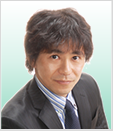Professor N. Hohashi has coined a new term, "family signs/symptoms," which he uses to describe "problematic conditions in the family system unit, comprehensively assessed by a nursing professional based on subjective and objective family data." Through reviews of numerous family cases and years of clinical experience, 59 types of family signs/symptoms have been distinctly identified (as of May 2017). These would include "distortions in the power structure of the family," "insufficiency in development of family resilience," "irregularities in regulation of the family interface membrane" and others. Through understanding of family signs/symptoms, it becomes possible to plan and implement measures for family support.
Because the Concentric Sphere Family Environment Theory (CSFET) takes a holistic approach to the environment that affects the family's well-being, Professor Hohashi is proposing it as a new theory within family health care nursing studies. Based on the family assessment model (including labeling of family signs/symptoms), the family intervention model and others have been developed.
- References
-
Hohashi, N., & Honda, J. (2011). Development of the Concentric Sphere Family Environment Model and companion tools for culturally congruent family assessment. Journal of Transcultural Nursing, 22(4), 350-361. doi:10.1177/1043659611414200 (Impact factor: 0.953)
Hohashi, N., Hinoue, E., Kobayashi, K., Yamashita, T., Nagatomi, H., Honda, J., et al. (2010). Atarashii kazoku kangogaku: Riron, jissen, kenkyu [New family health care nursing: Theory, practice and research]. (N. Hohashi, Ed.). Tokyo: Medical Friend.
The society for the study of the Concentric Sphere Family Environment Theory, by conducting such activities as improvements, clinical applications, empirical studies, propagation activities and others of the family assessment model and family intervention model which are based on the Concentric Sphere Family Environment Theory, has the objective of realizing family intervention toward all kinds of families. The society, composed of regular members and research and development members, was established on October 1, 2007. Presently it seeks to expand membership through wider recruitment of regular members.
Through the conducting of open seminars and workshops, the society deals with a variety of topics, such as family case studies. These can be held at any time in Japan, the United States, China and other countries. The research and development members will need to participate in about 80 closed research and development meetings per year. In addition, the research and development members are also competitively engaged in research projects that harness competitive grants, and communicates its research findings within and outside Japan through the issuing of information, publication of books and others.
With the aim of developing family intervention and contributing to the family's well-being, The society for the study of the Concentric Sphere Family Environment Theory has adopted a system of occupational certification. This system serves as verification of the knowledge and skills related to family intervention based on the Concentric Sphere Family Environment Theory. Currently candidates are able to earn titles in two levels of certification: Certified Intermediate Specialist in Family Support (CISFS) and Certified Advanced Specialist in Family Support (CASFS).
